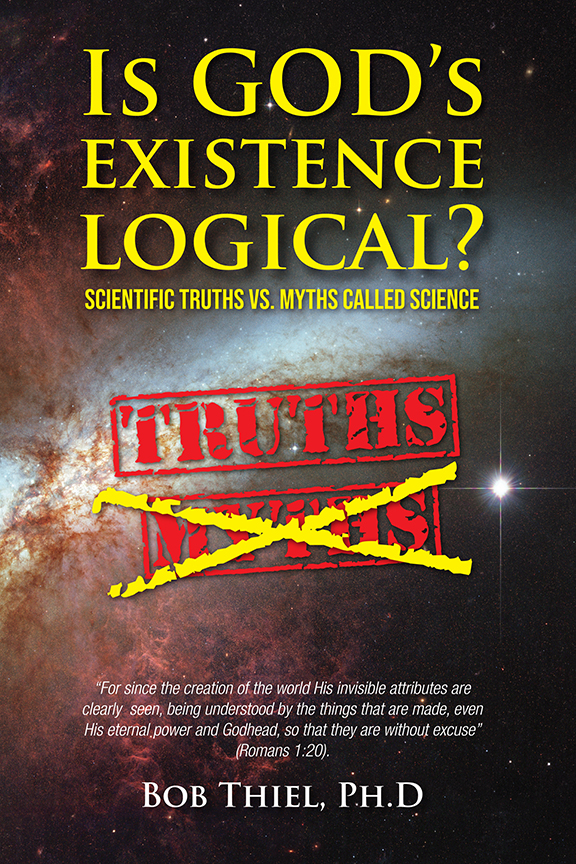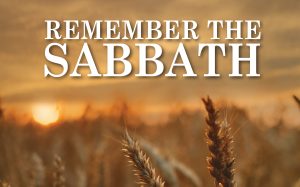
© CCOG
COGwriter
Israel365 News posted the following:
Shabbat for Christians? An Interview with Rabbi Elie Mischel
March 24, 2025
Rabbi Elie Mischel’s forthcoming book, “Shabbat Revolution: A Practical Guide to Weekly Renewal,” offers Christians a pathway to embrace the transformative power of Shabbat. In this interview with Sara Lamm, Rabbi Mischel discusses why he believes Shabbat is relevant for Christians and how it can transform our modern world. …
Sara: Your book is called “Shabbat Revolution.” Why do you describe it as a “revolution”?
Rabbi Mischel: Look around and you’ll see a world that never stops. Our technology was supposed to make life easier, but it’s done the opposite. We’re always on, always available, and it’s wearing us down.
Think about it – most of us wake up and immediately grab our phones. The average person checks their phone more than 150 times a day – that’s literally every few minutes we’re awake. Half of Americans regularly work on weekends now. When was the last time anyone truly disconnected?
The crazy thing is, despite all these time-saving gadgets, everyone feels more rushed than ever. Even our free time has become another task to optimize. We plan our vacations down to the minute. We track our exercise like it’s a job performance review. We’ve forgotten how to just be present.
What we need is to rediscover how to stop. We need to remember we’re human beings, not human doings. That’s why I call this a Shabbat Revolution – because it’s about taking back our time and our humanity.
Sara: But isn’t Shabbat specifically a Jewish commandment? How does it apply to Christians?
Rabbi Mischel: You know, Shabbat was created by God at the very beginning of time – well before the creation of the people of Israel. In Genesis, after creating the universe, God rested on the seventh day, blessing it and making it holy. God wasn’t tired – the Creator of the universe doesn’t need a nap! He was establishing a pattern for all humanity.
Jews have a special relationship with Shabbat because we’re commanded to keep all of its laws, but fundamentally, Shabbat is for everyone. It’s built into the fabric of creation.
When Christians explore Shabbat, they’re not “becoming Jewish” – they’re connecting with a pattern that God established for all people. … Throughout Scripture, Shabbat is the antidote to exile, the solution to spiritual crisis, the path back to God. When we keep Shabbat, Shabbat keeps us. https://israel365news.com/407366/shabbat-for-christians-an-interview-with-rabbi-elie-mischel/
Is the Sabbath applicable for Christians?
Yes.
Jesus taught:
4 “It is written, ‘Man shall not live by bread alone, but by every word that proceeds from the mouth of God.'” (Matthew 4:4)
The Apostle Paul taught:
16 All Scripture is given by inspiration of God, and is profitable for doctrine, for reproof, for correction, for instruction in righteousness, 17 that the man of God may be complete, thoroughly equipped for every good work. (2 Timothy 3:16-17)
So, does the portion of scripture known as the New Testament enjoin keeping the Sabbath for Christians?
Notice what the New Testament Book of Hebrews teaches using five Protestant (including three ‘literal’), one Eastern Orthodox, and three Roman Catholic translations:
3 Now we who have believed enter that rest, just as God has said, “So I declared on oath in my anger, ‘They shall never enter my rest.'” And yet his work has been finished since the creation of the world. 4 For somewhere he has spoken about the seventh day in these words: “And on the seventh day God rested from all his work.” 5 And again in the passage above he says, “They shall never enter my rest.” 6 It still remains that some will enter that rest, and those who formerly had the gospel preached to them did not go in, because of their disobedience…9 There remains, then, a Sabbath-rest for the people of God; 10 for anyone who enters God’s rest also rests from his own work, just as God did from his. 11 Let us, therefore, make every effort to enter that rest, so that no one will fall by following their example of disobedience (Hebrews 4:3-6,9-11, NIV).
3 For we who have believed enter that rest, just as He has said, “AS I SWORE IN MY WRATH, THEY SHALL NOT ENTER MY REST,” although His works were finished from the foundation of the world. 4 For He has said somewhere concerning the seventh day: “AND GOD RESTED ON THE SEVENTH DAY FROM ALL HIS WORKS”; 5 and again in this passage, “THEY SHALL NOT ENTER MY REST.” 6 Therefore, since it remains for some to enter it, and those who formerly had good news preached to them failed to enter because of disobedience,.. 9 So there remains a Sabbath rest for the people of God. 10 For the one who has entered His rest has himself also rested from his works, as God did from His. 11 Therefore let us be diligent to enter that rest, so that no one will fall, through following the same example of disobedience. (Hebrews 4:3-6,9-11, NASB)
3 for we do enter into the rest — we who did believe, as He said, ‘So I sware in My anger, If they shall enter into My rest — ;’ and yet the works were done from the foundation of the world, 4 for He spake in a certain place concerning the seventh [day] thus: ‘And God did rest in the seventh day from all His works;’ 5 and in this [place] again, ‘If they shall enter into My rest — ;’ 6 since then, it remaineth for certain to enter into it, and those who did first hear good news entered not in because of unbelief … 9 there doth remain, then, a sabbatic rest to the people of God, 10 for he who did enter into his rest, he also rested from his works, as God from His own. 11 May we be diligent, then, to enter into that rest, that no one in the same example of the unbelief may fall, (Hebrews 4:3-6,9-11, Young’s Literal Translation)
3 For those having believed enter into the rest, as He has said: “So I swore in my wrath, ‘they shall not enter into My rest.’” And yet the works have been finished from the foundation of the world. 4 For He has spoken somewhere concerning the seventh day in this way, “And on the seventh day God rested from all His works.” 5 And again in this passage. “They shall not enter into My rest.” 6 Therefore, since it remains for some to enter into it, and those having received the good news formerly did not enter in because of disobedience, … 9 So then, there remains a Sabbath rest for the people of God. 10 For the one having entered into His rest, he also rested from his works, as God did from the own. 11 Therefore we should be diligent to enter into that rest, so that no one should fall by the same example of disobedience. (Hebrews 4:3-6,9-11, Berean Literal Bible)
3 for we enter into the rest—we who believed, as He said, “So I swore in My anger, They will [not] enter into My rest”; and yet the works were done from the foundation of the world, 4 for He spoke in a certain place concerning the seventh [day] thus: “And God rested in the seventh day from all His works”; 5 and in this [place] again, “They will [not] enter into My rest”; 6 since then, it remains for some to enter into it, and those who first heard good news did not enter in because of unbelief … 9 there remains, then, a Sabbath rest to the people of God, 10 for he who entered into His rest, he also rested from his works, as God from His own. 11 May we be diligent, then, to enter into that rest, that no one may fall in the same example of the unbelief, (Hebrews 4:3-6,9-11, Literal Standard Version Bible)
3 However, we who have faith are entering into that rest, even as God said: As I swore in my wrath, they will not enter into my rest. And yet, the works were finished from the foundation of the world. 4 Somewhere [else], God said this about the seventh day: God rested on the seventh day from all his works. … 9 There must still be, then, a Sabbath rest for God’s people, 10 and anyone who has entered into his rest has also rested from his [own] works, just as God did. 11 Therefore, let us do our utmost to enter into that rest, for fear that anyone should fall according to the same pattern of disobedience. (Hebrews 4:3-4, 9-11. THE EASTERN / GREEK ORTHODOX BIBLE NEW TESTAMENT. The EOB New Testament is presented in memory of Archbishop Vsevolod of Scopelos † 2007 https://azbyka.ru/otechnik/assets/uploads/books/18204/Eastern_Orthodox_Bible-New_Testament.pdf)
3 We, however, who have faith, are entering a place of rest, as in the text: And then in my anger I swore that they would never enter my place of rest. Now God’s work was all finished at the beginning of the world; 4 as one text says, referring to the seventh day: And God rested on the seventh day after all the work he had been doing. 5 And, again, the passage above says: They will never reach my place of rest. 6 It remains the case, then, that there would be some people who would reach it, and since those who first heard the good news were prevented from entering by their refusal to believe … 9 There must still be, therefore, a seventh-day rest reserved for God’s people, 10 since to enter the place of rest is to rest after your work, as God did after his. 11 Let us, then, press forward to enter this place of rest, or some of you might copy this example of refusal to believe and be lost. (Hebrews 4:3-6,9-11, NJB)
3 For we, that have believed, shall enter into their rest; as he said: As I sware in my wrath, if they shall enter into my rest: and truly the works from the foundation of the world being perfected. 4 For he said in a certain place of the seventh day thus: And God rested the seventh day from all his works … 9 Therefore there is left a sabbatisme for the people of God. 10 For he that is entered into his rest, the same also hath rested from his works, as God did from his. 11 Let us hasten therefore to enter into that rest; lest any man fall into the same example of incredulity. (Hebrews 4:3-6,9-11, The Original and True Rheims New Testament of Anno Domini 1582)
3 For we who believed enter into [that] rest, just as he has said: “As I swore in my wrath, ‘They shall not enter into my rest,’” and yet his works were accomplished at the foundation of the world. 4 For he has spoken somewhere about the seventh day in this manner, “And God rested on the seventh day from all his works”; 5 and again, in the previously mentioned place, “They shall not enter into my rest.” 6 Therefore, since it remains that some will enter into it, and those who formerly received the good news did not enter because of disobedience,… 9 Therefore, a sabbath rest still remains for the people of God. 10And whoever enters into God’s rest, rests from his own works as God did from his. 11 Therefore, let us strive to enter into that rest, so that no one may fall after the same example of disobedience.(Hebrews 4:3-6,9-11, New American Bible)
Thus, the New Testament clearly shows that the command to keep the seventh day Sabbath is in the New Testament. It also shows that only those who will not observe it because of their disobedience argue otherwise. And that is why Paul observed it.
Even Origen of Alexandria understood some of this as he wrote:
But what is the feast of the Sabbath except that which the apostle speaks, “There remaineth therefore a Sabbatism,” that is, the observance of the Sabbath, by the people of God…let us see how the Sabbath ought to be observed by a Christian. On the Sabbath-day all worldly labors ought to be abstained from…give yourselves up to spiritual exercises, repairing to church, attending to sacred reading and instruction…this is the observance of the Christian Sabbath (Translated from Origen’s Opera 2, Paris, 1733, Andrews J.N. in History of the Sabbath, 3rd editon, 1887. Reprint Teach Services, Brushton (NY), 1998, pp. 324-325).
As it turns out, at least 20 Protestant translations make it clear that Hebrews 4:9 is pointing to the weekly seventh-day Sabbath (ASV, BLB, BSB, CSB, DBT, ERV, ESV, GNT, HCSB, ILB, ISV, JMNT, Jubilee 2000, NASB, NETB, NHEB, NIV, WEB, WNT, YLT).
Yet, one reason that many today do not understand this is that certain translators have intentionally mistranslated the Greek term sabbatismos (ςαββατισμóς) which is actually found in Hebrews 4:9 (Green JP. The Interlinear Bible, 2nd edition. Hendrickson Publishers, 1986, p. 930).
The Protestant KJV and NKJV mistranslate it as does the CHANGED version of the Rheims New Testament, also known as the Challoner version (changes in the 18th century)–all three mistranslate the word as ‘rest,’ whereas there is a different Greek term (katapausin), translated as ‘rest’ in the New Testament. Sabbatismos clearly refers to a ‘sabbath-rest’ and honest scholars will all admit that. Because of the mistranslations, most today do not realize that the seventh-day Sabbath was specifically enjoined for Christians in the New Testament.
If you are Roman Catholic, consider the following:
Codex Amiatinus The most celebrated manuscript of the Latin Vulgate Bible, remarkable as the best witness to the true text of St. Jerome … (Fenlon, John Francis. “Codex Amiatinus.” The Catholic Encyclopedia. Vol. 4. New York: Robert Appleton Company, 1908. 21 Apr. 2012 <http://www.newadvent.org/cathen/04081a.htm>)
Here is the Latin from the Codex Amiatinus:
9 itaque relinquitur sabbatismus populo Dei (Hebrews 4:9, Codex Amiatinus. http://www.latinvulgate.com/lv/verse.aspx?t=1&b=19&c=4 accessed 10/22/15)
It is clear, even to non-Latin readers that Hebrews 4:9 is definitely talking about the Sabbath.
Decades ago, a Protestant told me that the reason he did not keep the seventh-day Sabbath was because it was not taught for Christians in the New Testament. I handed him a Bible *RSV) and read him Hebrews 4. He then looked at the verses himself. After doing so, he said because his grandmother was a “good Christian” in his view, and because she did not keep it, he felt that he did not. He failed to truly rely on the Bible, but instead on false tradition (see also Tradition and Scripture: From the Bible and Church Writings). Sadly most who profess Christianity do not keep the seventh-day Sabbath and rely mainly on improper traditions, whether they realize it or not.
Notice something from the Jehovah’s Witnesses translation of scripture:
9 So there remains a sabbath-rest for the people of God. (Hebrews 4:9, NWT, 2013)
For those interested in another source, here is a translation of Hebrews 4:9 from the, Eastern Peschitta, which is an Aramaic text (Roth AG, Daniel BB. Aramaic English New Testament, 5th edition. Netazari Press, 2012):
- For there remains a Shabat for the people of Elohim.
Here is a claimed translation from a ‘Hebrew’ New Testament (which some call the Brit HaHadashah):
9 There remaineth therefore a sabbath rest for the people of God.
Whether we look at translations from the Greek, the first Latin Vulgate, Aramaic, or Hebrew, it should be clear that the Bible does enjoin Sabbath-keeping for Christians.
History also shows that early Christians kept the Sabbath,
The first 15 Christian bishops/overseers of the Church of God in Jerusalem were Jews that kept the seventh day Sabbath–hence the Sabbath was part of the original faith we should contend for (cf. Jude 3).
What about others in Gentile areas?
The following was published in the January-February 2018 edition of its The Sabbath Sentinel magazine which helps give additional historical information:
Sabbath–Post New Testament
By Bob Thiel, Ph.D.
This is the fifth part of a five-part series explaining why certain early documents that are claimed against the seventh-day Sabbath are misunderstood and not actually against it.
In my previous articles, I explained that the Greek word Κυριακήν did not mean Sunday and many have misinterpreted writings from the Didache and Ignatius of Antioch’s Letter to the Magnesians as endorsing Sunday. Thus, the earliest claimed post-New Testament documents cited as “proof” that the seventh-day Sabbath was done away truly did not do so.
Is there other proof?
Yes.
If Jesus and/or His apostles did away with the Sabbath as many claim, then it would be reasonable to conclude that the later faithful disciples would not keep it. Yet, other records and writings demonstrate that the faithful did continue to keep the seventh-day Sabbath.
It is well know that from the first century until about 135 A.D. the first fifteen bishops/pastors of Jerusalem all kept the seventh-day Sabbath and were all circumcised Jews (Eusebius. The History of the Church, Book III, Chapter V, Verses 2,3.& Book IV, Chapter 5, Verses 2-4, pp. 45, 71).
Although they have their own biases, even the historians Philip Schaff and Johann Gieseler correctly noted:
The Jewish Christians, at least in Palestine, conformed as closely as possible to the venerable forms of the cultus of their fathers, which in truth were divinely ordained, and were an expressive type of the Christian worship. So far as we know, they scrupulously observed the Sabbath, the annual Jewish feasts, the hours of daily prayer, and the whole Mosaic ritual (Schaff, Philip, History of the Christian Church, Chapter 9. Oak Harbor, WA: Logos Research Systems, Inc. 1997. This material has been carefully compared, corrected¸ and emended according to the 1910 edition of Charles Scribner’s Sons by The Electronic Bible Society, Dallas, TX, 1998.)
While the Jewish Christians of Palestine retained the entire Mosaic law, and consequently the Jewish festivals, the Gentile Christians observed also the Sabbath and the passover (1 Cor. v. 6-8), with reference to the last scenes of Jesus’ life, but without Jewish superstition (Gal. iv. 10 ; Col. ii. 16) (Gieseler, Johann Karl Ludwig. A text-book of church history, Volume I, Chapter II. New York : Harper & brothers. Date 1857-80).
It is known that early Jewish Christians did keep the Sabbath and biblical holy days. And as prophesied by Isaiah (Isaiah 56:1-7), so did the faithful Gentile Christians (and the Isaiah prophecy still has future application).
Ignatius and Polycarp
The faithful Gentile Christians were also keeping the Sabbath outside of Jerusalem. In the early second century, Pastor/Bishop Ignatius of Antioch wrote:
…to Polycarp, bishop of the Smyrnaeans…So approving am I of your godly mind, which is as it were, grounded upon an unmovable rock, that my praise exceeds all bounds…Do not let those who appear to be trustworthy yet who teach strange doctrines baffle you. Stand firm, like an anvil…Grace will be…always…with Polycarp [Ignatius. Letter to Polycarp. In: Holmes, pp. 194-201].
And according to the later testimonies of Irenaeus, Polycrates, and Tertullian, the leader of the Sabbath-keeping Smyrnaeans [The Martrydom of Polycarp. Verse 8.1. In: Holmes, p. 233], Polycarp, did just that in Asia Minor.
Polycarp also taught that Christians should keep the commandments [Polycarp. Letter to the Philippians. In: Holmes, pp. 206-221].
And on the following sabbath he said; ‘Hear ye my exhortation, beloved children of God. I adjured you when the bishops were present, and now again I exhort you all to walk decorously and worthily in the way of the Lord…Watch ye, and again Be ye ready, Let not your hearts be weighed down, the new commandment concerning love one towards another, His advent suddenly manifest as of rapid lightning, the great judgment by fire, the eternal life, His immortal kingdom. And all things whatsoever being taught of God ye know, when ye search the inspired Scriptures, engrave with the pen of the Holy Spirit on your hearts, that the commandments may abide in you indelible.’ [Life of Polycarp, Chapter 24. (1889) from J. B. Lightfoot, The Apostolic Fathers, vol. 3.2, pp. 488-506]
(Note: While some claim Polycarp also kept Sunday, that appears to be a later edition to the text [Monroy MS. The Church of Smyrna: History and Theology of a Primitive Christian Community. Peter Lang edition, 2015, p. 31].)
According to the The Martyrdom of Polycarp by the Smyrnaeans [The Martyrdom of Polycarp, Bishop of Smyrna, Verses 7.1 & 8.1. Charles H. Hoole’s 1885 translation] and other sources [Sozomen. THE ECCLESIASTICAL HISTORY OF SOZOMEN. Book VII, Chapter XIX.], Christians in Polycarp’s area kept the Sabbath after he died.
And since Polycarp referred to Ignatius as ‘blessed’ and endorsed Ignatius’ letters in his Letter to the Philippians [Polycarp. Letter to the Philippians, verse 13.2. In: Holmes, p. 219], it is logical to conclude that Ignatius was faithful to the same teachings and practices that Polycarp did.
Theophilus
In the late second century, Pastor/Bishop Theophilus of Antioch wrote:
And on the sixth day God finished His works which He made, and rested on the seventh day from all His works which He made. And God blessed the seventh day, and sanctified it; because in it He rested from all His works which God began to create…Moreover, [they spoke] concerning the seventh day, which all men acknowledge; but the most know not that what among the Hebrews is called the “Sabbath,” is translated into Greek the “Seventh” (έβδομάς), a name which is adopted by every nation, although they know not the reason of the appellation…God having thus completed the heavens, and the earth, and the sea, and all that are in them, on the sixth day, rested on the seventh day from all His works which He made (Theophilus of Antioch. To Autolycus, Book 2, Chapters XI, XII, XIX. Translated by Marcus Dods, A.M. Excerpted from Ante-Nicene Fathers, Volume 2. Edited by Alexander Roberts & James Donaldson. American Edition, 1885, pp. 99,102).
The early faithful Gentile Christians kept the Sabbath. Until the early third century, there was harmony between the faithful Christians in Antioch and Asia Minor.
Conclusion
Early Jewish and Gentile Christians kept the seventh day Sabbath. The faithful did not believe that the Sabbath was done away.
As explained in early parts of this article, neither the Didache or Ignatius’ Letter to the Magnesians actually mention the term Sunday or directly refer to the first day of the week. The Didache is not an endorsement of early Sunday observance.
Ignatius, himself, would have had to be a supporter of the seventh day Sabbath and would not have written against it. Nor, if properly translated, do Ignatius’ letters ever truly write against the seventh day sabbath–instead they endorse the concept that Christians are to keep the Sabbath in accordance with the commandments and the Lord’s way of living, but not according to the ways endorsed by unbiblical Jewish tradition.
There is no evidence whatsoever that any who professed Christ regularly worshiped on Sunday when Ignatius was alive. The simple fact is that Ignatius’ writings do not support the idea that the early New Testament Church observed Sunday.
The Greek expression he used in Magnesians (κυριακήν ζωντες) simply did not mean Sunday when Ignatius wrote his letters. And there is no other contemporaneous reference that any professing Christian at the time of Ignatius observed Sunday. Available evidence (including the Bible, i.e. Acts 13:42-44; Hebrews 4:9) clearly supports the idea that early Christians kept the seventh day Sabbath.
The first clear reference to Sunday worship, even according to Roman Catholic sources, was from Justin Martyr [Slater T. Sunday. Transcribed by Scott Anthony Hibbs. The Catholic Encyclopedia, Volume XIV. Published 1912. New York: Robert Appleton Company. Nihil Obstat, July 1, 1912. Remy Lafort, S.T.D., Censor. Imprimatur. +John Cardinal Farley, Archbishop of New York]. Yet he held so many heretical positions [e.g. see Justin Martyr. The First Apology and Letter to Trypho], it makes no sense to this author that any could truly consider him to be a true Christian.
On the other hand, Polycarp and those faithful Christians who remained in Asia Minor and Antioch did continue to keep the Sabbath for centuries after Jesus died. Faithful Christians still keep the Sabbath to this day.
Here is a link to the first article I had published in The Sabbath Sentinel: The Sabbath Sentinel: The Didache and the Sabbath.
The published article is basically an extract from my article Another Look at the Didache, Ignatius, and the Sabbath. Because of the restrictions in article length for The Sabbath Sentinel, I submitted just a few pages which they published.
While it is nice that a Jewish rabbi wants Christians to keep the Sabbath, faithful Christians have done so throughout the church age (see also the free e-books Continuing History of the Church of God and Beliefs of the Original Catholic Church: Could a remnant group have continuing apostolic succession?).
That said, I would suggest that the Jewish rabbi read the free online e-book Proof Jesus is the Messiah. In addition showing how Jesus fulfilled hundreds of Hebrew scriptures, chapter 3 specifically explains why Jewish objections to Jesus are not logical as well as showing how other Jewish writings do point to Jesus being the Messiah.
But some may wonder HOW to keep the Sabbath?
The old Worldwide Church of God published the following:
Nothing in the New Testament even remotely suggests that the Church Christ started ever kept any day but the seventh. But how should Christians observe and keep God’s weekly Sabbath day? …
Obviously, a person must still eat on the seventh day. God is not raining manna down from heaven today, so food must be prepared. Most heavy preparation should be done on Friday, however. But it is not wrong to cook on the holy days of God (Ex. 12:16). Nor is there any scriptural law against watching some types of television programming or having a short, refreshing swim in a backyard pool, or even indulging in mild physical activity — including marital relations. But if any such activity should begin to dominate the Sabbath day, it would obviously become a violation since God would be removed from the picture. …
f you can set God apart in your mind on the seventh day — think of Him, learn of Him in His Word, pray more to Him and reflect on your own need to overcome and develop the mind of Christ, then you will be keeping the spirit of the Sabbath day. If your mind is primarily on God and the things of God, then the Sabbath is serving you as Christ intended. It will be a day of rest for spiritual and physical rejuvenation.
If your mind is mainly on your own thoughts, dreams, business deals, entertainment, etc., etc., then you will be missing the mark in keeping the Sabbath.
In ancient Israel the Sabbath day was customarily observed by holding services in the local synagogue. A definite series of readings of Scripture were prearranged and read every Sabbath in the Temple or synagogue services. These services were usually held in the morning with those in attendance having a major meal (feast) in the afternoon. Often guests were brought home from the synagogue. Thus most of the Sabbath day was taken up with services and fellowship.
Modern-Day Sabbath Keepers
Today, modern Christians still faithfully keep the seventh-day Sabbath, just as God originally ordained it. (Knowles B. The Sabbath Was Made for Man. Good News, May 1974)
Now, as far as the seventh-day Sabbath vs. Sunday goes, the Continuing Church of God put together the following video on our Bible News Prophecy YouTube channel:
Here is a link to our video: Sabbath, Sunday, and Scripture.
Remember that Jesus said:
“It is written, ‘Man shall not live by bread alone, but by every word that proceeds from the mouth of God.'” (Matthew 4:4)
If you truly want to live by what the word of God says you, too, will keep the seventh-day Sabbath.
Several other items of possibly related interest may include:
The Sabbath in the Early Church and Abroad Was the seventh-day (Saturday) Sabbath observed by the apostolic and post-apostolic Church? Here is a related sermon video The Christian Sabbath and How and Why to Keep It.
How to Observe the Sabbath How should you keep the Sabbath? This is an old article by Raymond Cole, with updated information for the 21st century.
Sunday and Christianity Was Sunday observed by the apostolic and true post-apostolic Christians? Who clearly endorsed Sunday? What relevance is the first or the “eighth” day? A related sermon is also available: Sunday: First and Eighth Day?
The Ten Commandments: The Decalogue, Christianity, and the Beast This is a free pdf book explaining the what the Ten Commandments are, where they came from, how early professors of Christ viewed them, and how various ones, including the Beast of Revelation, will oppose them. A related sermon is titled: The Ten Commandments and the Beast of Revelation.
FOURTH COMMANDMENT: The Sabbath in the Early Church and Abroad Was the seventh-day (Saturday) Sabbath observed by the apostolic and post-apostolic Church? Here is a link to a related sermon: Fourth Commandment: Saturday or Sunday?
Another Look at the Didache, Ignatius, and the Sabbath Did Ignatius write against the Sabbath and for Sunday? What about the Didache? What does the actual Greek reveal?
Is Revelation 1:10 talking about Sunday or the Day of the Lord? Most Protestant scholars say Sunday is the Lord’s Day, but is that what the Bible teaches?
The Sabbath in the Early Church and Abroad Was the seventh-day (Saturday) Sabbath observed by the apostolic and post-apostolic Church? Here is a related sermon video The Christian Sabbath and How and Why to Keep It.
The Christian Sabbath. This is a series of articles from the Catholic Mirror essentially proving that the biblical Sabbath was Saturday, that the Lord’s day in Revelation 1 is not a reference to Sunday, that the Church of Rome implemented Sunday, and that nearly all Protestants followed Rome. Here is a link to a related sermon: Catholic teachings on the Sabbath, Sunday, and Protestantism.
Early Sabbath Keeping in North America When did Europeans first keep the Sabbath in North America? Did the pilgrims who arrived on the Mayflower keep Saturday or Sunday?
Can You Keep Your Job, Get Your Degree, and Keep the Sabbath? This article has some information on that. Here is a link to a related video titled: Can you keep the Sabbath and your job? What about college?
The Dramatic Story of Chinese Sabbathkeepers This reformatted Good News article from 1955 discusses Sabbath-keeping in China in the 1800s.
Is God Unreasonable? Some have suggested that if God requires Sabbath-keeping He is unreasonable. Is that true? Here is a link to a related article in Mandarin Chinese NN*N T�t�v„y^ÿ�
Should You Keep God’s Holy Days or Demonic Holidays? This is a free pdf booklet explaining what the Bible and history shows about God’s Holy Days and popular holidays. Two related sermons would be Which Spring Days should Christians observe? and Fall Holy Days for Christians.
Is There “An Annual Worship Calendar” In the Bible? This paper provides a biblical and historical critique of several articles, including one by the Tkach WCG which states that this should be a local decision. What do the Holy Days mean? Here is a related link in Spanish/español: Calendario Anual de Adoración �Una crítica basada en la Biblia y en la Historia: ¿Hay un Calendario Anual de Adoración en la Biblia? A sermonette in English covers: Colossians, Galatians, and the Feasts of God.
Messianic Judaism Beliefs Differ from the Continuing Church of God Both groups keep the seventh-day Sabbath, but have important differences in doctrines and practices. Here is a link to a related sermon: Messianic Judaism beliefs.
SDA/CCOG Differences: Two Horned Beast of Revelation and 666 The genuine Church of God is NOT part of the Seventh-day Adventists. This article explains two prophetic differences, the trinity, differences in approaching doctrine, including Ellen White. Did Ellen White make prophetic errors? Did Ellen White make false prophecies? Here is a version in the Spanish language: SDA/COG Diferencias: La bestia de dos cuernos de Apocalipsis y 666. Here are two sermons in the English language: Seventh Day Baptists/Adventists/Messianics: Protestant or COG? and CCOG and SDA differences and similarities. Here is a link to an article in the Spanish language: Diferencias: SDA/CCOG: La bestia de dos cuernos de Apocalipsis y 666.
Seventh Day Baptists are Protestant, not Church of God This article explains reasons why Baptists, include seventh day ones (SDBs) do not have the historical and doctrinal ties to the original church that many have claimed. Here are two related sermons in the English language: Seventh Day Baptists/Adventists/Messianics: Protestant or COG? and Protestant, Baptist, and CCOG History.
Proof Jesus is the Messiah This free book has over 200 Hebrew prophecies were fulfilled by Jesus. Plus, His arrival was consistent with specific prophecies and even Jewish interpretations of prophecy. Here are links to seven related sermons: Proof Jesus is the Messiah, Prophecies of Jesus’ birth, timing, and death, Jesus’ prophesied divinity, 200+ OT prophecies Jesus filled; Plus prophecies He made, Why Don’t Jews Accept Jesus?, Daniel 9, Jews, and Jesus, and Facts and Atheists’ Delusions About Jesus. Plus the links to two sermonettes: Luke’s census: Any historical evidence? and Muslims believe Jesus is the Messiah, but … These videos cover nearly all of the book, plus have some information not in the book. We also have the book translated in the Spanish PRUEBA de que JESÚS es el MESÍAS and French PREUVES QUE JÉSUS EST LE MESSIE languages.
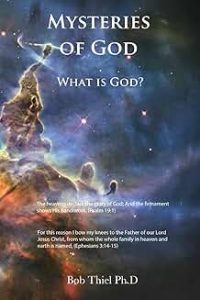

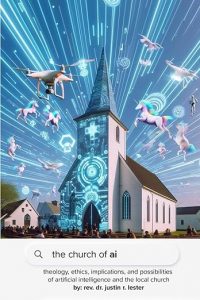



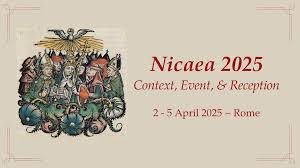
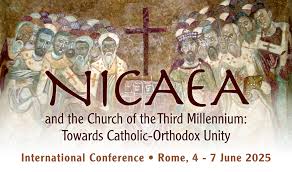


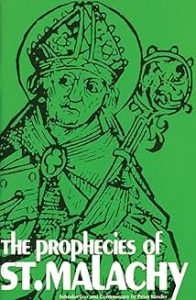

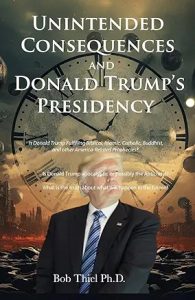

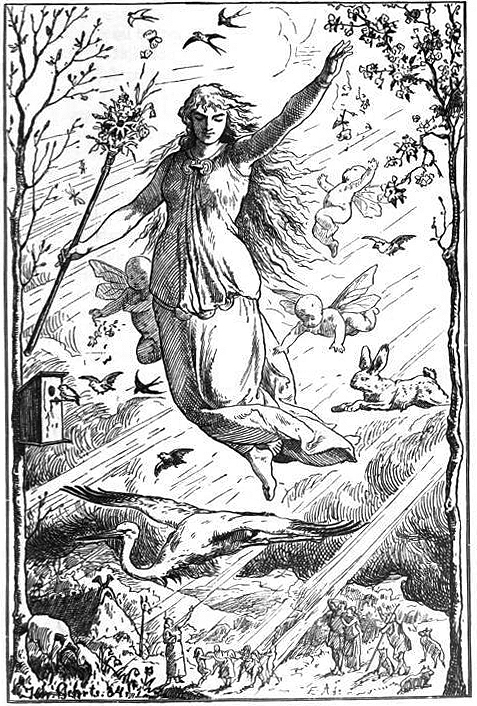

 In the Spanish/
In the Spanish/

